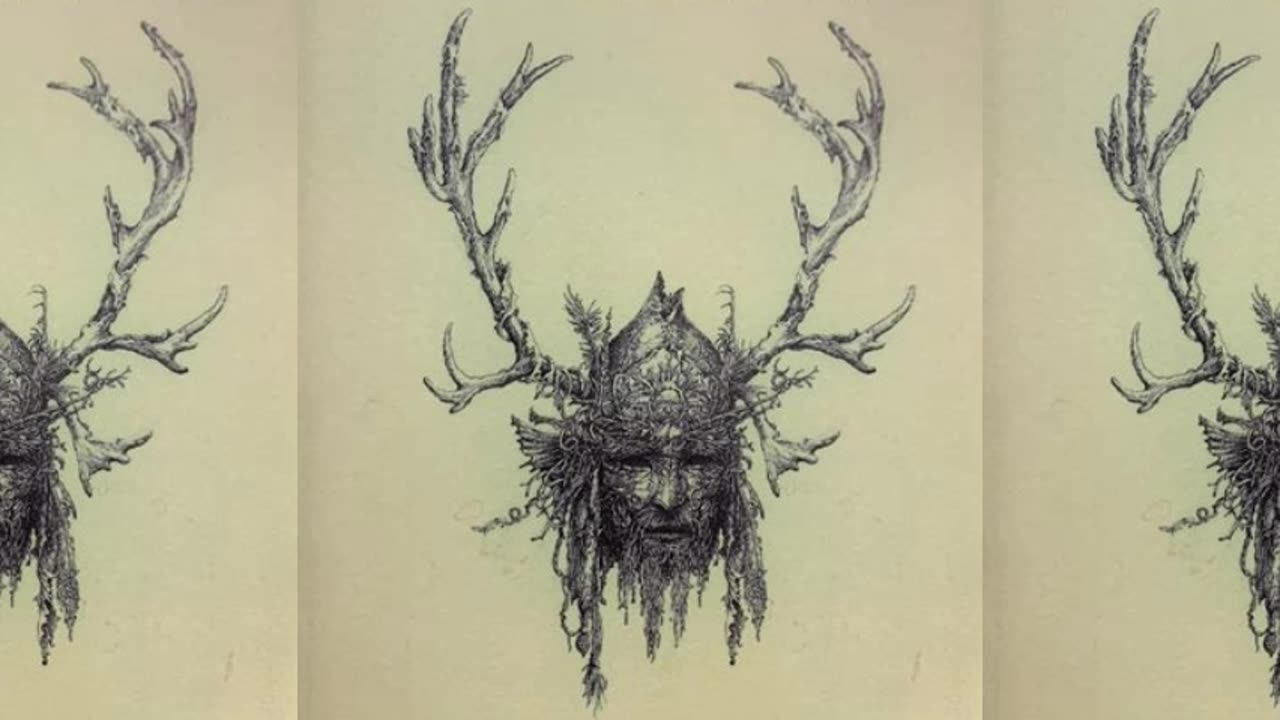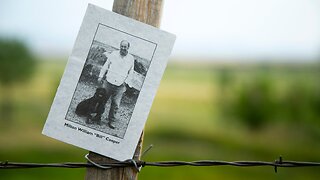Premium Only Content

The Hill of Dreams by Arthur Machen (1907)
The Hill of Dreams, first published in 1907, is Arthur Machen’s most personal and introspective work, a semi-autobiographical novel that blurs the lines between reality, dream, memory, and mysticism. Unlike his more well-known tales of horror and supernatural dread, this novel is a deeply psychological and spiritual exploration of an artist’s inner world, chronicling the life and descent of a sensitive young man named Lucian Taylor.
Lucian grows up in rural Wales, surrounded by ancient ruins, overgrown landscapes, and the lingering aura of the Roman occupation. From a young age, he is drawn not to the material world, but to an inner life of imagination and spiritual vision. His experiences on a hill near his home - later referred to as the titular "Hill of Dreams"... initiate him into moments of ecstatic beauty and otherworldly revelation. These moments echo the classic initiatory experiences found in mystical traditions, where the veil between the visible and invisible is briefly lifted. Yet unlike in traditional Masonic or Rosicrucian allegory, Lucian receives no guiding hand - only the overwhelming weight of his visions and the loneliness they bring.
As Lucian matures, he moves to London to pursue life as a writer, but his mystical sensitivity renders him increasingly detached from modern life. He becomes consumed by dreams, memories, and internal quests for beauty, ultimately losing touch with physical reality. His journey becomes one of isolation, where the spiritual is not a ladder to ascent, but a labyrinth with no clear center.
The novel is thick with symbolic and poetic language, and it reflects Machen’s lifelong belief that the physical world is only a shadow of a deeper, hidden reality. Themes of spiritual longing, aesthetic transcendence, and the cost of visionary insight dominate the narrative. For readers familiar with esoteric traditions, The Hill of Dreams resembles the early stages of the mystical path, when the initiate is overwhelmed by beauty and truth, but lacks the structure or strength to endure it.
Often described as Machen’s most beautiful book, The Hill of Dreams is less a plot-driven novel and more a literary initiation into the pain and wonder of the spiritual search. It shares philosophical DNA with works by William Blake and Thomas De Quincey, and it stands as a lyrical tribute to the price artists and mystics pay when their vision pierces too far beyond the veil.
About the Author
Arthur Machen (1863–1947) was a Welsh author, mystic, and journalist best known for his works of supernatural and occult fiction. Born Arthur Llewellyn Jones in Caerleon, Monmouthshire, Machen drew lifelong inspiration from the ancient myths, ruined Roman temples, and mist-shrouded hills of the Welsh countryside. Though raised in a devout Christian household, he developed an early fascination with alchemy, ceremonial magic, and the unseen forces beneath the fabric of reality—an obsession that would shape the core of his literary legacy.
Machen’s early life was steeped in classical literature, and he translated The Heptameron of Marguerite of Navarre before turning to fiction. His breakthrough came with The Great God Pan (1894), a tale of mystical transgression and hidden worlds that scandalized Victorian England with its implications of spiritual and sexual horror. This story, along with The White People and The Hill of Dreams, cemented his reputation as a master of the "weird tale"—stories in which spiritual dread and metaphysical unease replace conventional terror.
Although he was never a member of any formal esoteric order, Machen’s writings reveal a deep sympathy with the mystical worldview of groups like the Hermetic Order of the Golden Dawn, Rosicrucians, and initiatory societies such as Freemasonry. He believed that the mundane world was but a veil over the divine, and that beneath our ordinary senses lies a realm of beauty, terror, and transcendent truth. Many of his protagonists stumble upon this hidden realm—often at great personal cost.
In his later years, Machen found a second wave of appreciation among literary figures like H.P. Lovecraft, who called him a “modern master of the grotesque.” Today, Machen’s works are studied not only for their literary merit but also for their contribution to Western esoteric thought. His stories remain potent gateways for those seeking the spiritual edge where myth, mysticism, and madness intertwine.
-
 6:06:29
6:06:29
Deus Meum Que Jus
1 day agoWilliam Cooper - HOTT - The Lost Light Series 9.97
420 -
 2:52:54
2:52:54
Barry Cunningham
3 hours agoMUST SEE: PRESIDENT TRUMP NATO PRESSER! AND NEW YORK CITY MAYORAL DEBATE!
29K34 -
 13:15
13:15
Cash Jordan
6 hours ago"INVASION" Mob STRIKES Chicago Jail… FRONTLINE Marines IGNORE Judge, SMASH Illegals
10.9K15 -
 LIVE
LIVE
SpartakusLIVE
3 hours ago#1 Solo Challenge CHAMPION entertains HERDS of NERDS
195 watching -
 LIVE
LIVE
Alex Zedra
1 hour agoLIVE! New Game | DeathWatchers
113 watching -
 LIVE
LIVE
Nikko Ortiz
2 hours agoShotguns With A Magazine... |Rumble Live
66 watching -
 23:18
23:18
Lady Decade
7 hours agoThe Diversity Lie Gaming Refuses To Talk About
7.3K4 -
 LIVE
LIVE
Geeks + Gamers
2 hours agoGeeks+Gamers Play- MARIO KART WORLD
163 watching -

Midnight In The Mountains™
5 hours agoGaming w/ Midnight | Studio is BACK and SO ARE WE | 3 AWAY FROM 1,500 WILL YOU GET ME THERE?!
3.54K3 -
 1:51:13
1:51:13
Glenn Greenwald
7 hours agoTucker Carlson Speaks at Turning Point, Prompting Cheers and Controversy; More Evidence of Israeli Atrocities Amid Fragile Ceasefire; Tommy Robinson Submits to Re-Education in Israel | SYSTEM UPDATE #536
101K100